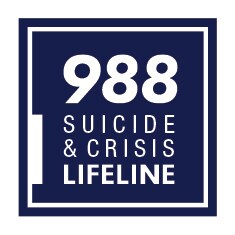Mental Health and Coping with Stress Resources

Traumatic events take different forms—natural disasters (earthquakes, tornados, wildfires), personal loss, school shootings, and community violence—and their effects on us vary. People may feel sad, confused, scared, or worried. Others may feel numb or even happy to be alive and safe. Reactions to traumatic events can be had by those directly impacted as well as by friends and family of victims, first responders, and people learning about the events from the news.
Feeling stressed before or after a traumatic event is normal. But, this stress becomes a problem when we are unable to cope well with it and when the stress gets in the way of taking care of ourselves and family, going to school, or doing our jobs. Coping well with stress begins with recognizing how we are reacting and then by taking steps to manage our reactions in a healthy way.
- Tips for Coping with Stress|Publications|Violence Prevention|Injury Center|CDC
- Stress and Coping (cdc.gov)
- Dealing with Stress after a Traumatic Event | CDC
- Stress | How Right Now (cdc.gov)
- Coping with a Disaster or Traumatic Event (cdc.gov)
- Supporting Emotional Wellbeing in Children and Youth
Websites
SAMHSA Disaster Distress Helpline
American Psychological Association
How Right Now
Phone Numbers to Call for Help
Disaster Distress Helpline: Call or text 1-800-985-5990
988 Suicide and Crisis Lifeline: Call or text 988
Contact the 988 Suicide and Crisis Lifeline if you are experiencing mental health-related distress or are worried about a loved one who may need crisis support.
- Call or text 988
- Chat at 988lifeline.org
Connect with a trained crisis counselor. 988 is confidential, free, and available 24/7/365.
Visit the 988 Suicide and Crisis Lifeline for more information at 988lifeline.org.
